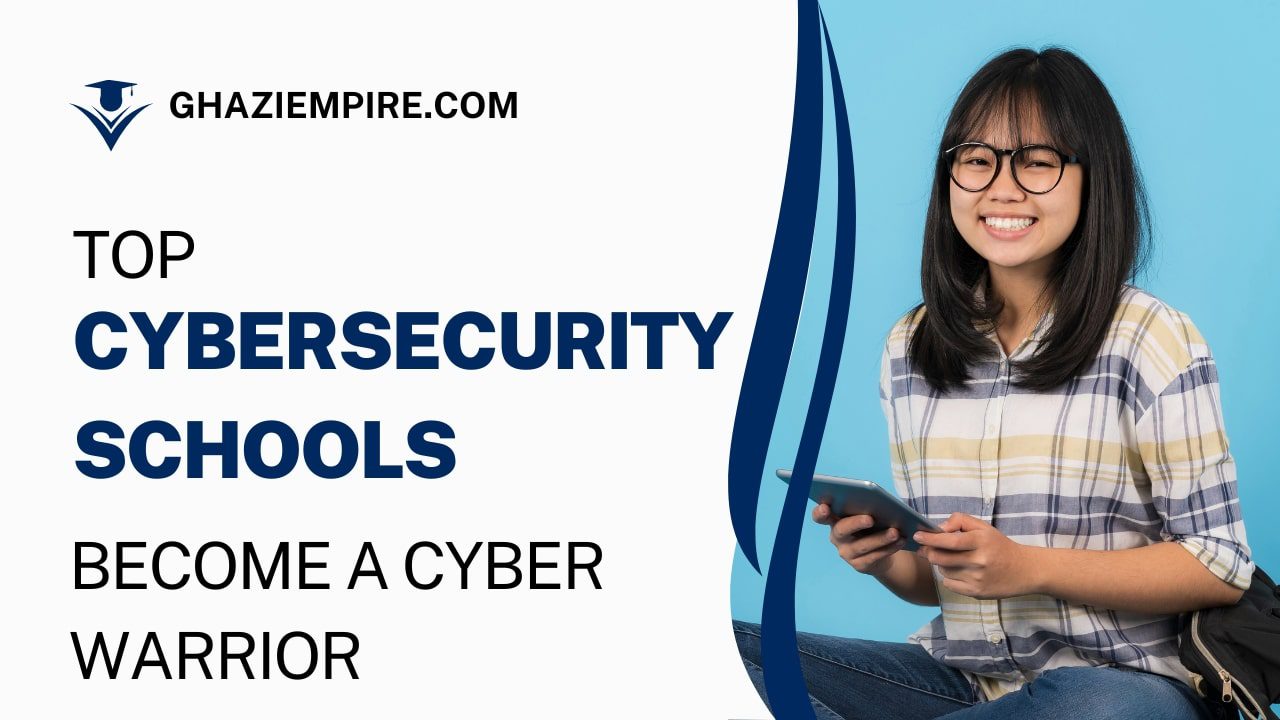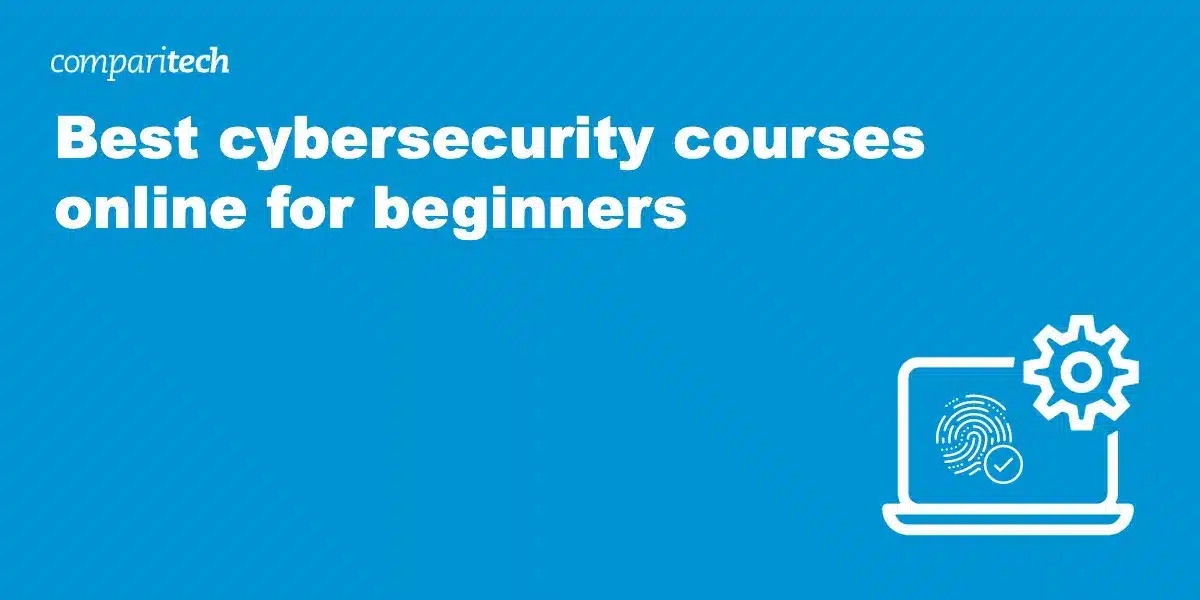Top Cybersecurity Schools: Become a Best Cyber Warrior

Top Cybersecurity Schools: Become a Best Cyber Warrior
Introduction
Cybersecurity schools hold the key to unlocking your potential as a formidable Cyber Warrior in the digital age. With the ever-growing threat landscape and the critical need to safeguard sensitive information, the demand for skilled cybersecurity professionals has skyrocketed. If you’re ready to embark on a path of defending against cyber threats and securing our digital future, it’s time to explore the top cybersecurity schools that can equip you with the knowledge and skills you need.
These schools are not your ordinary educational institutions. They are the training grounds for the next generation of cybersecurity experts, offering specialized programs and cutting-edge curricula designed to tackle the most complex cyber challenges. From network security and ethical hacking to cryptography and incident response, these schools provide a comprehensive education that prepares you for real-world scenarios.
What sets these cybersecurity schools apart is their commitment to staying ahead of the curve. They understand that the cyber threat landscape is constantly evolving, and they strive to equip their students with the latest tools and techniques to combat emerging risks. With expert faculty members who possess vast industry experience, you’ll have the opportunity to learn from the best and gain insights into the inner workings of the cybersecurity world.
Choosing the right cybersecurity school is crucial, as it sets the foundation for your future success. Look for institutions with strong industry connections, internship opportunities, and a track record of producing skilled graduates. By immersing yourself in these programs, you’ll develop the expertise and mindset required to become a Cyber Warrior who can protect and defend against cyber threats.
Get ready to unleash your potential and become a Cyber Warrior through the top cybersecurity schools. Join the ranks of those dedicated to making a difference in the digital realm, where your skills and knowledge will play a vital role in ensuring a secure and resilient future.
Understanding the Cybersecurity Landscape
The Evolution of Cyber Threats
Cyber threats have evolved rapidly over the years, becoming more sophisticated and pervasive. From simple malware and phishing attacks to complex ransomware and nation-state cyber espionage, the digital landscape is constantly under siege. Understanding the nature of these threats is essential for aspiring cyber warriors to develop effective defense strategies.
Cybersecurity Skills in High Demand
The demand for cybersecurity professionals has skyrocketed as organizations recognize the need for robust protection against cyber threats. Skills such as network security, incident response, ethical hacking, and data privacy have become highly sought after. Cybersecurity schools provide the necessary education and training to equip students with these in-demand skills.
Benefits of Pursuing a Career in Cybersecurity
A career in cybersecurity offers numerous advantages. Firstly, job security is virtually guaranteed, as the demand for skilled professionals far exceeds the supply. Additionally, cybersecurity careers are financially rewarding, with attractive salaries and ample opportunities for advancement. Moreover, working in cybersecurity allows individuals to make a tangible impact by safeguarding sensitive information and defending against cybercrime.
Choosing the Right Cybersecurity School
Factors to Consider When Selecting a Cybersecurity School
Choosing the right cybersecurity school is a critical decision that can shape your future career. Factors to consider include accreditation, program quality, faculty expertise, industry recognition, and alumni success. These aspects ensure that you receive a comprehensive and reputable education that aligns with industry standards.
Accreditation and Reputation: Ensuring Quality Education
Opting for an accredited cybersecurity school ensures that you receive a quality education recognized by employers. Accreditation demonstrates that the school meets specific educational standards and equips students with the necessary knowledge and skills. Additionally, considering the reputation of the institution provides insight into the overall quality of the program.
Specializations and Programs Offered
Cybersecurity encompasses a broad range of specializations, including network security, digital forensics, information assurance, and ethical hacking. Evaluating the specializations and programs offered by cybersecurity schools helps you align your educational goals with your career aspirations. Choose a school that provides a curriculum tailored to your interests and future job prospects.
Faculty Expertise and Industry Connections
The expertise and qualifications of the faculty play a crucial role in the quality of education you receive. Experienced professors with industry backgrounds bring real-world knowledge and insights to the classroom, enhancing the learning experience. Additionally, schools with strong industry connections can provide valuable networking opportunities, internships, and potential job placements.
Top Cybersecurity Schools Worldwide
In this section, we will highlight five top cybersecurity schools renowned for their exceptional programs, faculty, and industry reputation. Let’s explore the program highlights, curriculum overview, and notable faculty of each school:
Carnegie Mellon University
Program Highlights:
- Carnegie Mellon University’s cybersecurity program is renowned for its excellence and innovation in the field.
- The program offers a multidisciplinary approach, combining technical, policy, and management aspects of cybersecurity.
- Students have access to state-of-the-art facilities and resources, including cutting-edge labs and research centers.
- The program emphasizes hands-on experience through practical projects, internships, and industry collaborations.
Curriculum Overview:
- The curriculum covers a wide range of cybersecurity topics, including network security, cryptography, digital forensics, secure software development, and risk management.
- Students gain a deep understanding of both offensive and defensive cybersecurity strategies, preparing them for real-world challenges.
- The program incorporates case studies and real-world scenarios to provide practical knowledge and problem-solving skills.
- Elective courses allow students to specialize in areas such as secure cloud computing, IoT security, or cyber threat intelligence.
Notable Faculty:
- Dr. Lorrie Cranor: Renowned expert in privacy and usable security, leading research on secure user authentication and privacy-enhancing technologies.
- Dr. Virgil Gligor: Internationally recognized for his contributions to computer security, cryptography, and access control.
- Dr. David Brumley: Known for his research in software security and automated vulnerability detection, focusing on techniques to identify and fix software vulnerabilities.
Massachusetts Institute of Technology
Program Highlights:
- MIT offers a comprehensive cybersecurity program that combines technical expertise with policy and leadership aspects.
- The program emphasizes a holistic approach to cybersecurity, integrating technology, human factors, and societal impacts.
- Students benefit from MIT’s strong industry connections and partnerships, leading to opportunities for internships, research, and job placements.
- The program promotes interdisciplinary collaboration, allowing students to work alongside experts in various fields.
Curriculum Overview:
- The curriculum covers fundamental concepts in cybersecurity, including network security, cryptography, secure software development, and risk management.
- Students explore emerging areas such as AI and machine learning for cybersecurity, IoT security, and privacy-enhancing technologies.
- The program includes hands-on projects, practical labs, and real-world case studies to develop practical skills and problem-solving abilities.
- Elective courses offer specialization options in areas like cybersecurity policy, digital forensics, or secure systems design.
Notable Faculty:
- Dr. Ron Rivest: Co-inventor of the RSA encryption algorithm, a pioneer in the field of cryptography, and a leading expert on computer security and privacy.
- Dr. Daniela Rus: Internationally recognized for her research in robotics and artificial intelligence, with applications in cybersecurity, privacy, and data analytics.
- Dr. Howard Shrobe: Known for his work in security and artificial intelligence, focusing on developing robust systems and defending against cyber threats.
Stanford University
Program Highlights:
- Stanford University’s cybersecurity program offers a multidisciplinary approach, combining technical knowledge with policy and legal aspects of cybersecurity.
- The program emphasizes experiential learning, providing students with opportunities for hands-on projects, internships, and collaboration with industry partners.
- Stanford’s location in Silicon Valley offers unique access to cutting-edge technologies, startups, and industry leaders in cybersecurity.
Curriculum Overview:
- The curriculum covers a broad range of cybersecurity topics, including network security, cryptography, secure coding, digital forensics, and privacy.
- Students have the flexibility to tailor their education through a wide range of elective courses, allowing specialization in areas such as cloud security, mobile security, or cyber threat intelligence.
- The program integrates practical learning experiences, such as simulated cyber attack exercises, to develop real-world skills and incident response capabilities.
- Students also have opportunities to engage in cybersecurity research projects, contributing to the advancement of the field.
Notable Faculty:
- Dr. Dan Boneh: A leading expert in applied cryptography and computer security, known for his contributions to secure protocols and cryptographic systems.
- Dr. Fei-Fei Li: An AI researcher with expertise in computer vision, machine learning, and data mining, exploring the intersection of AI and cybersecurity.
- Dr. John Mitchell: Known for his work in software security and formal methods, focusing on techniques to design secure systems and analyze vulnerabilities.
University of Cambridge
Program Highlights:
- The University of Cambridge offers a distinguished cybersecurity program known for its academic rigor and research excellence.
- The program combines theoretical knowledge with practical skills, preparing students for cybersecurity challenges in various domains.
- Students benefit from the university’s strong connections with industry, government agencies, and research institutions, providing networking and career opportunities.
Curriculum Overview:
- The curriculum covers key areas of cybersecurity, including cryptography, network security, secure coding, digital forensics, and ethical hacking.
- Students gain a solid foundation in theoretical concepts and practical techniques through a combination of lectures, labs, and hands-on projects.
- The program encourages interdisciplinary learning, with opportunities to explore related fields such as computer science, law, and psychology.
- Elective courses allow students to specialize in areas such as cyber risk management, privacy-enhancing technologies, or secure software development.
Notable Faculty:
- Prof. Ross Anderson: A prominent figure in the field of cybersecurity, known for his research on security engineering, trusted computing, and privacy.
- Prof. Jon Crowcroft: Internationally recognized for his contributions to computer networks, including network security, peer-to-peer systems, and mobile computing.
- Dr. Alice Hutchings: A leading researcher in privacy and cybersecurity, focusing on topics such as anonymous communication, privacy-enhancing technologies, and online security protocols.
University of Toronto

Program Highlights:
- The University of Toronto’s cybersecurity program is highly regarded for its comprehensive curriculum and research opportunities.
- The program offers a balanced mix of theoretical foundations, practical skills, and industry collaboration to prepare students for cybersecurity careers.
- Students benefit from the university’s strong ties with industry partners, government agencies, and research institutions, fostering valuable connections.
Curriculum Overview:
- The curriculum covers core topics in cybersecurity, including cryptography, network security, secure software development, digital forensics, and risk management.
- Students gain hands-on experience through practical projects, laboratory work, and internships, developing skills in areas such as penetration testing and incident response.
- The program offers elective courses that allow students to specialize in emerging areas such as IoT security, cloud security, or data privacy.
- Interdisciplinary courses provide opportunities to explore related fields such as computer science, law, and business.
Notable Faculty:
- Prof. David Lie: Internationally recognized for his research in systems and software security, focusing on securing computer systems against attacks and vulnerabilities.
- Prof. Michael Brudno: Known for his work in genomics and computational biology, with applications in bioinformatics security and privacy.
- Prof. Matthew Caesar: A leading expert in network security, with research interests in internet routing security, DDoS defense, and network measurements.
Cybersecurity School Comparison:
Comparing Tuition Fees and Financial Aid Opportunities:
Tuition fees vary between cybersecurity schools, and it’s essential to consider the financial aspect of your education. Evaluate the cost of tuition, as well as available scholarships, grants, and financial aid opportunities offered by each institution.
Evaluating Practical Training and Internship Programs:
Practical training and internship programs provide valuable real-world experience. Assess the availability of hands-on learning opportunities, industry partnerships, and internships that allow you to apply your knowledge in practical settings.
Analyzing Job Placement Rates and Alumni Success Stories:
The job placement rates of a cybersecurity program can be indicative of its effectiveness in preparing graduates for careers in the field. Research the employment statistics, alumni success stories, and the reputation of the program among potential employers.
Exploring Industry Partnerships and Networking Opportunities:
Strong industry partnerships can offer unique networking opportunities, internships, and access to cutting-edge research and projects. Consider the relationships that each cybersecurity school has established with industry leaders and organizations.
Assessing Campus Facilities and Resources:
The availability of modern facilities, state-of-the-art labs, and resources can greatly enhance your learning experience. Evaluate the campus infrastructure, cybersecurity-specific resources, and research facilities offered by each institution.
Remember that this comparison is a starting point, and it’s crucial to conduct further research and consider your personal preferences, career goals, and specific program offerings before making a decision. Each cybersecurity school has its strengths and areas of expertise, so choose the one that aligns with your interests and provides the opportunities you seek for a successful career in cybersecurity.
Comparing Tuition Fees and Financial Aid Opportunities
Pursuing higher education comes with financial considerations. Comparing tuition fees and exploring financial aid options helps you make an informed decision about the affordability of cybersecurity schools. Scholarships, grants, and work-study programs can alleviate the financial burden and make education more accessible.
Evaluating Practical Training and Internship Programs
Hands-on experience is invaluable in the field of cybersecurity. Assessing the practical training and internship programs offered by cybersecurity schools helps you gauge the level of real-world exposure and the opportunities available to apply your knowledge in practical scenarios.
Analyzing Job Placement Rates and Alumni Success Stories
Job placement rates and alumni success stories reflect the effectiveness of a cybersecurity school’s education and training. Reviewing these metrics provides insight into the school’s ability to prepare graduates for the job market and their subsequent career trajectories.
Exploring Industry Partnerships and Networking Opportunities
Strong industry partnerships and networking opportunities can open doors to internships, mentorships, and job prospects. Cybersecurity schools that collaborate with industry leaders and offer networking events create a conducive environment for students to connect with professionals and potential employers.
Assessing Campus Facilities and Resources
A conducive learning environment is crucial for a rewarding educational experience. Assessing the campus facilities, including cybersecurity labs, research centers, libraries, and technological resources, helps determine the extent to which the school invests in supporting students’ learning needs.
Student Perspectives and Success Stories
In this section, we will feature interviews with current and former cybersecurity students. These interviews provide invaluable insights into their experiences, challenges, and successes when choosing a cybersecurity school. Discover their unique perspectives and gain first-hand knowledge about the factors they considered and the impact their education had on their careers.
Tips for a Successful Application
Preparing a Strong Application Package
Crafting a strong application package is crucial to stand out from the competition. This section provides tips on creating a compelling resume, writing an impactful statement of purpose, and securing strong recommendation letters.
Nailing the Admissions Interview
The admissions interview is an opportunity for cybersecurity schools to assess your suitability as a candidate. This section offers guidance on how to prepare for and excel in the admissions interview, showcasing your passion, knowledge, and potential.
Securing Scholarships and Financial Aid
Financial considerations can be a significant factor in choosing a cybersecurity school. This section provides insights into the various scholarships, grants, and financial aid opportunities available to help fund your education. Tips for securing these opportunities are also included.
Beyond the Classroom: Cybersecurity Resources and Communities
Online Learning Platforms and Cybersecurity Courses
The learning journey does not end within the walls of a classroom. This section highlights reputable online learning platforms and cybersecurity courses that enable continuous learning and skill enhancement beyond the formal education provided by cybersecurity schools.
Cybersecurity Certifications: Boosting Your Credentials
Certifications are valuable credentials that enhance your marketability and demonstrate specialized knowledge. This section explores popular cybersecurity certifications and their benefits, helping you make informed decisions about which certifications align with your career goals.
Professional Associations and Networking Events
Joining professional associations and attending networking events is essential for building connections within the cybersecurity industry. This section provides an overview of prominent cybersecurity associations and networking events, emphasizing the importance of active involvement in professional communities.
Cybersecurity Blogs, Forums, and Publications
Staying updated with the latest trends, news, and insights in cybersecurity is crucial for personal and professional growth. This section recommends notable cybersecurity blogs, forums, and publications that provide valuable resources and opportunities for knowledge exchange.
Industry Trends and Future Outlook
Emerging Technologies and Their Impact on Cybersecurity
The field of cybersecurity constantly evolves alongside technological advancements. This section explores emerging technologies such as artificial intelligence, quantum computing, and the Internet of Things (IoT) and examines their impact on cybersecurity practices, challenges, and opportunities.
Shifting Cyber Threat Landscape and Career Opportunities
The cyber threat landscape is ever-changing, presenting both challenges and opportunities. This section delves into the evolving nature of cyber threats, including new attack vectors and trends, and explores the resulting career opportunities for cybersecurity professionals.
Continuous Learning and Professional Development
In the fast-paced world of cybersecurity, continuous learning, and professional development are essential to stay ahead. This section emphasizes the importance of lifelong learning, professional certifications, and staying updated with industry trends to remain competitive and adaptable in the cybersecurity field.
Conclusion
In conclusion, becoming a cyberwarrior requires careful consideration when choosing the right cybersecurity school. Understanding the cybersecurity landscape, evaluating factors like accreditation, faculty expertise, and industry connections, and exploring top cybersecurity schools worldwide are crucial steps in embarking on this rewarding career path. By following the tips provided and leveraging available resources and communities, you can maximize your chances of success and contribute to the ever-growing field of cybersecurity. Embrace the journey, become a cyber warrior, and make a difference in protecting our digital world.







